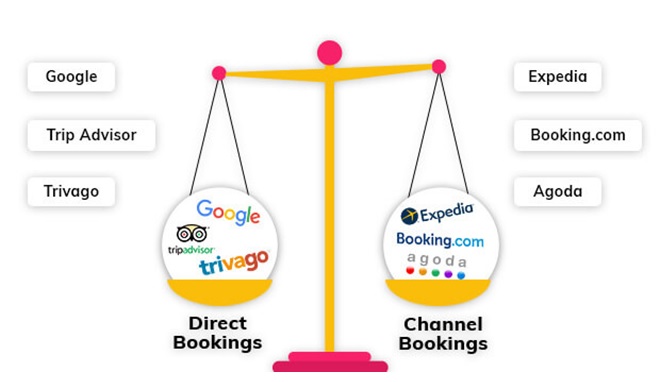Travelers, these days want to get the most relevant information about their stay options right away, which is why they largely rely on meta search engines and online travel agencies (OTAs). And being a hotelier, it’s imperative to understand that how metasearch engines and OTAs differ from each other.

| Meta Search Engines | OTAs |
| They display the current rates of many different hotels of a particular destination. | They promote hotels in destinations across the globe, presenting their room rates, descriptions and photographs. |
| Example: Google, TripAdvisor, Trivago | Example: Booking.com, Agoda, Expedia |
OTAs pass off as valuable partners to sell your inventory through. You can directly book from an OTA website, whereas, you cannot book from a meta search engine. That’s the major difference between both of these. However, now, meta search engines like TripAdvisor and Google have started displaying instant booking buttons that allow travelers to book directly from the meta search results giving you more direct bookings. Although, the commission costs of meta search engines being lower than the OTAs proves that you cannot ignore the meta search engines completely. Whereas, without a distribution partnership with OTAs, you can be widely overlooked in the market.
Whether it’s an OTA or a meta search engine, both transmit a pivotal role for hotels in all segments. A channel manager in such cases can help you automate your inventory distribution on all channels; whereas a booking engine can get bookings directed from the meta search engine results.
(From: eZee Technosys)
